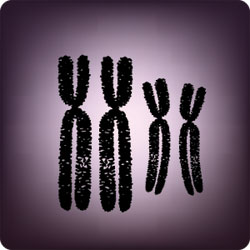Accessing information on chromosomal disorders
Advances in medical science have enabled scientists to study chromosomes in greater detail and to detect a larger number of chromosomal abnormalities. However, valuable clinical data about rare genetic disorders remains unavailable because a significant number of cases have not been published. At the same time, parents of sufferers and doctors are increasingly demanding reliable information. The aim of the ECARUCA project was to collect and disseminate the latest data regarding genetic disorders to medical experts. This information can then be used to support the patient's mental development and to help alleviate physical handicaps. This was achieved using a database accessed through the internet, which was designed and developed by ECARUCA project partners from the University of Middlesex in the United Kingdom. The database system used a conventional client-server framework and featured four tiers. The data and the middleware tiers used a Relational database management system (RDBMS) and software libraries to give a tailor-made Application programming interface (API). The API enables individual modules to be developed between the database and the business object that links the user and the data. Bearing in mind the potential volume of data in such a project, the computer scientists used a database management system in the mid-range that can be extended in terms of mass of data stored. Specific to the aims of the project, the Middlesex University team also developed an algorithm for matching chromosome bands. The first of two client tiers included an administrative program for supervising the inputting, updating and validation of data in standalone mode. The second client tier was a web-based program which enabled medical experts to register and upload individual case studies via the internet. Similarly, doctors can retrieve clinical information regarding particular chromosomal aberrations. The ECARUCA database has successfully increased available knowledge and raised awareness of rare chromosomal disorders. It has facilitated collaboration between research centres. The genes responsible for specific congenital abnormalities can be identified by comparing clinical data of overlapping chromosome aberrations. In order to have sufficient information, collaboration between centres is necessary because of the rarity of individual chromosome disorders.

